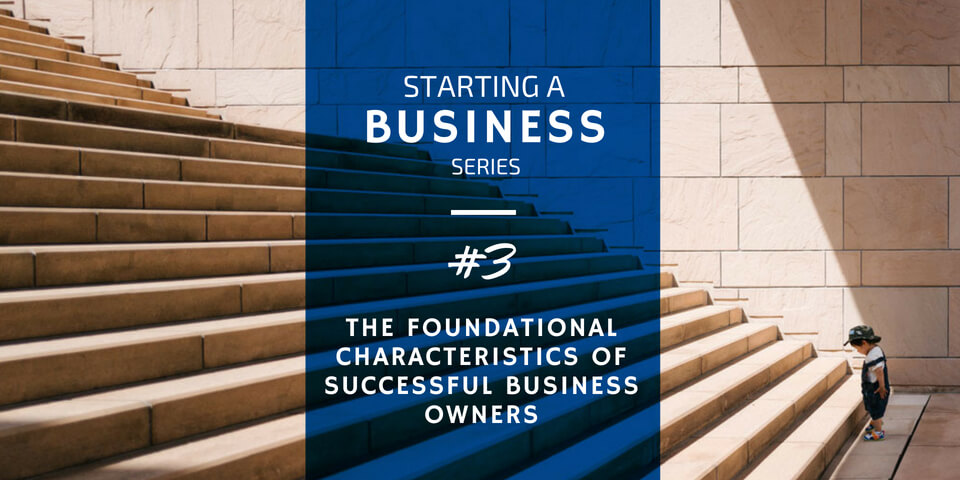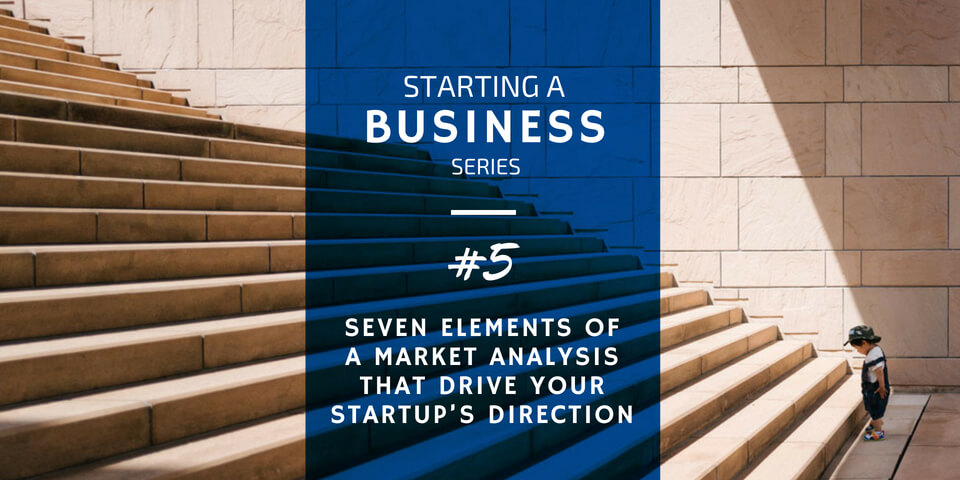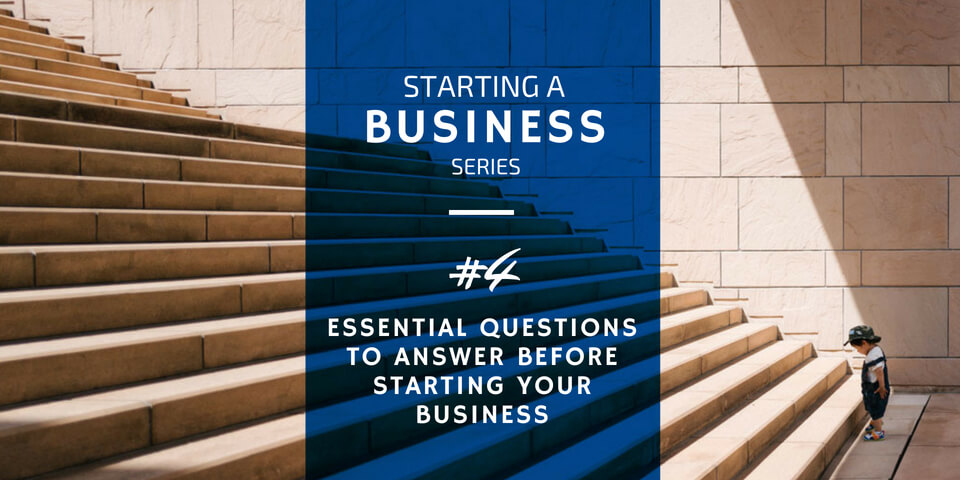
7 Characteristics of Successful Business Owners – Article #3
July 30, 2018
7 Questions to Answer When Conducting a Market Analysis for A Startup – Article #5
August 13, 201810 Essential Questions to Answer Before Starting Your Business – Article #4

As an entrepreneur, coming up with BIG IDEAS is easy. However, putting that idea on paper to determine it’s viability in the business world is a different matter. Most go-getters don’t really like to stop when they’re on their way to success. But the path to success requires patience and discipline. Simply having the personality traits of a business owner doesn’t mean you’re ready to be one. Therefore, I have listed ten essential questions for you to answer before starting your business.
Podcast Time Index For “The Business Plan – Part 1”
- 00:30 – The Business Plan
- 00:57 – What is a Business Plan?
- 06:41 – The questions for the foundation & success of your Business
- 08:04 – Why do you need a Business Plan?
- 14:35 – When to develop a Business Plan
- 16:25 – What are the key components of a Business Plan?
- 18:53 – Signing Off
Making An Itinerary
When I think about starting a business, I often think about going on a vacation. I know, you’re probably thinking, “Uh, Justin, that’s the opposite of starting a business,” but hear me out. Once I decide it’s time for a vacation, I have to do some planning to make the trip successful. Obviously, I don’t want to get in my car and start driving without a destination in mind. If I know I want to visit Oregon, I wouldn’t get in my car in Knoxville and just drive West, either. I have to have some direction from a map or a GPS to know where I’m going and how to get there. Before I can begin my vacation, I have to answer the following questions:
- Where am I headed?
- How long should it take me to get to my destination?
- How will I get there?
- What’s my budget?
- Who is traveling with me?
- Will I be stopping for any sightseeing or special events?
- Where will I be staying along the way?
- How will I feed everyone?
- What happens if we encounter delays or unexpected circumstances?
By answering these questions or some variation of them, I develop an itinerary for my vacation. I have a destination in mind. Depending on whether I want to take the scenic route or the quickest route, I can now chart a course to get to my destination. Additionally, I’ll know how many people will be coming with me so I know what kind of vehicle I need and how much food I’ll need along the way. If the trip takes me multiple days, I’ll be able to make overnight lodging reservations with friends or at hotels. And most importantly, because I’ve taken the time to write down all of this information, I’ll be able to create a realistic, workable plan and budget.
10 Essential Questions to Answer Before Starting Your Business
Once you decide to start a business, you need to know where you’re going and how you’re going to get there. A great way to start the process is to answer these questions:
- What does the END of your business look like?
- How will you fund your venture now and in the future?
- What product are you selling or service are you providing?
- Which people need your product or service?
- Why do they need that product or service?
- How will you get your product or service to those people?
- Can your business stand out amongst its current competition?
- What values drive your business?
- Who will run the day-to-day operations of the business?
- What is your projected revenue?
Essentially, answering these ten questions (and others like them) can help you create a business itinerary just as you would create a vacation itinerary. According to dictionary.com, an itinerary is merely “a detailed plan for a journey.” If writing down the details of your vacation helps you clarify your journey’s goals and expectations, then how much more will it help on your business journey?
Why You Should Write a Start-Up Business Plan
Putting the answers to those ten essential questions on paper doesn’t sound so hard, does it? No, it doesn’t. It’s not hard. And folks, when you write down the answers, you’ve already written parts of a start-up business plan! It’s almost that easy. A properly designed start-up business plan is no more than an official statement of the company’s objectives, the reason those objectives are viable, and the strategies you’ll use to successfully obtain them.
But why do you need to write a start-up business plan? Why can’t you just start working in your business once you have a BIG IDEA? Well, I often say that “working in your business is not the same thing as working on your business.” Anyone can work in a business, but it takes a real entrepreneur to work on their business. Taking the time to write a start-up plan for your business helps you in many ways and studies have shown that you’re far more likely to accomplish goals that you’ve put into writing.
#1 – A plan forces you to review everything at one time.
First, answering the ten essential business start-up questions helps you look at every part of your business simultaneously. Writing everything down on paper will help you draw parallels between each of the various areas of your business and analyze them for structural soundness.
Let’s say you’re reviewing the marketing section of your business plan. Your objective is to sell 20,000 widgets in six months. However, you have one salesperson in one region. Most likely, one salesperson will not be able to reach your goal. By reviewing everything at one time, you can identify weaknesses in your infrastructure, strengthening them before they become problems. You can say, “You know what? There’s no way I’m going to sell 20,000 widgets in six months with one sales guy. There’s no way. I’m going to need more salespeople.”
#2 – It allows you to forecast the future.
Next, writing a start-up business plan forces your brain to take the next steps before you actually take them. It allows you to make predictions about the future before you even begin your business. You see, by writing out a business plan, you can forecast growth, expansion, employee hiring, marketing, and more.
Imagine that I wanted to take that trip to Oregon and just started driving West. Just driving and driving without ever forecasting where I’m heading, hourly, or even daily. With my luck, I’d end up in Kalamazoo, Michigan. That’s not the direction I wanted to go; it’s North! Similarly, if I just jump into running my business without forecasting stops along the way or mapping out directions, It’s very unlikely that I would ever get where I want to go.
#3 – Writing down a plan allows buy-in from our family, friends, and/or business partners.
Finally, writing down a business itinerary allows our loved ones and business partners to buy into our vision. It lets them come alongside us and help us reach our business objectives. Maybe board members need to see the details of your vision, or perhaps, a lender needs this information to approve you for an initial loan.
Friends, being an entrepreneur can be lonely. No one else can share your burden when you leave at the end of the day. For that reason, you need your spouse, or your partner, to buy-in to your dream more than anyone else. That one person has to understand your BIG IDEA so that they can be your biggest cheerleader. If for no other reason, write out a plan for your spouse or partner.
Take the Time to Write Your Start-Up Business Plan
So before you start “driving” toward an unknown destination, think about what I’ve just said. Make some time to write down a start-up business plan. Think of it as an investment in your future. In my experience, the process never hurts; it only serves to help the business and the business owner.
Until then, remember that life is fun. Life is hard. Business is extremely complicated, but money doesn’t have to be. Let’s continue to make our lives, at least, financially simple.
Unsure of where to begin? The business experts at Financially Simple are here to help you on your path. Contact us to see how we can help make your BIG IDEA a reality, today!
NEXT STEP: Conduct a market analysis to find ways to differentiate your business.



